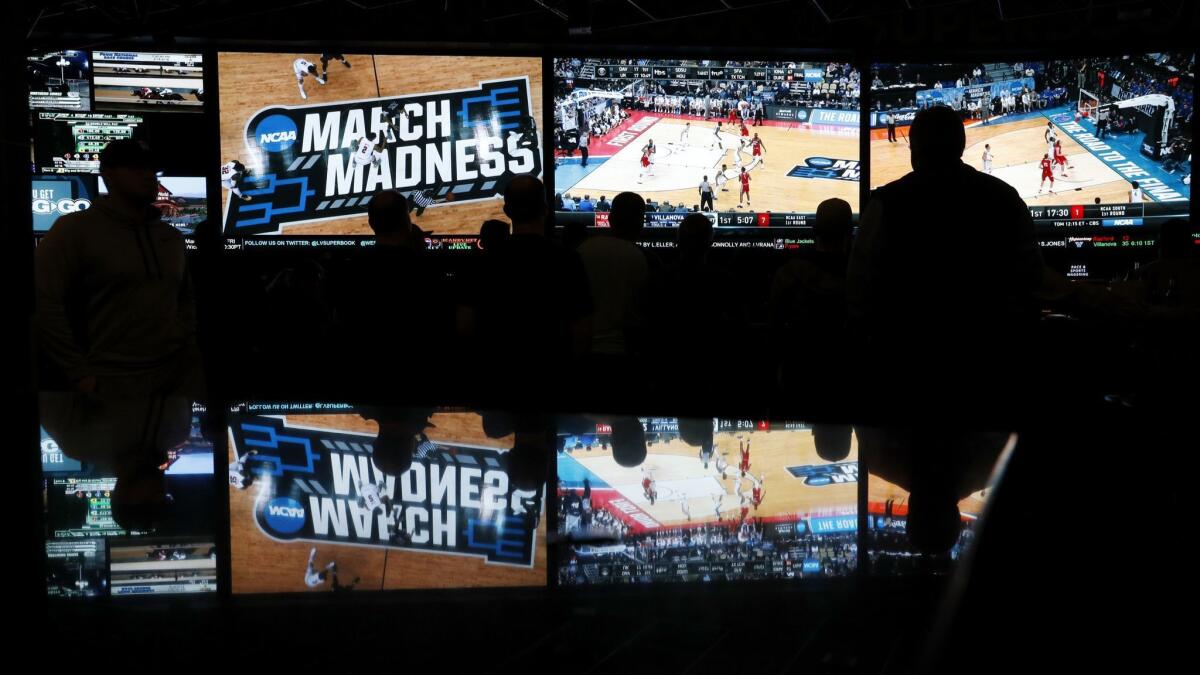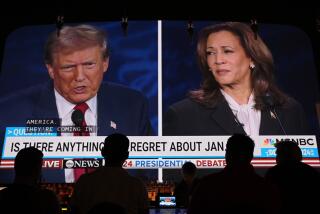Supreme Court rules on sports betting: What you need to know

The Supreme Court on Monday struck down part of a federal law that has prevented states such as New Jersey from legally offering sports betting, a decision that could have major implications for the gaming industry.
Legalized betting on sports is currently offered only in Nevada.
In Monday’s decision, Supreme Court Justice Samuel A. Alito said that although Congress has the right to directly regulate sports gambling, states can act on their own if Congress chooses not to.
Although the ruling does not legalize sports betting anywhere it wasn’t already legal, the ruling does allow states to repeal state restrictions on this kind of gambling. Federal law did not make sports betting a federal crime, but instead directed states not to authorize the practice.
Each state will have to determine its own rules for sports betting, as the bets still cannot be placed across state lines, said Kate Lowenhar-Fisher, chairwoman of the gaming practice group at law firm Dickinson Wright.
What does this decision mean for California?
California’s Constitution prohibits sports wagering. But Assemblyman Adam Gray (D-Merced) said Monday he would pursue a state constitutional amendment that, if approved by voters, would allow sports betting in the state.
“Whether we like it or not, Californians are already betting on sports through illegal and often unscrupulous websites in foreign countries,” Gray said. “It is time to bring this multibillion-dollar industry out of the shadows.”
But California probably will be a tricky jurisdiction for sports betting because of compacts that have been negotiated between the state and Indian casinos. Each tribe has a different agreement with the state, and if sports betting is not mentioned, tribes may choose to renegotiate, and those deals could take years to work out, Lowenhar-Fisher said.
Is horse racing affected by this ruling?
No. Betting on horse races was already legal throughout the United States, under the Interstate Horse Racing Act of 1978.
How have pro sports leagues reacted to the ruling?
The National Basketball Assn. and the National Football League each issued statements Monday advocating for the creation of a core federal framework that would standardize the approach to legalized sports betting in states that allow it.
The National Hockey League said that it would review its current practices and policies, but that the Supreme Court decision would have “no immediate impact” on league rules related to sports wagering.
Last month, the players unions for Major League Baseball, the NBA, the NFL and the NHL said in a joint statement that “we cannot allow those who have lobbied the hardest for sports gambling to be the only ones controlling how it would be ushered into our businesses.”
The players unions for Major League Baseball, the NBA, the NFL and the NHL said last month that they want to be involved in making decisions so as to protect games’ integrity and players’ rights. “We cannot allow those who have lobbied the hardest for sports gambling to be the only ones controlling how it would be ushered into our businesses,” they said in a joint statement.
Lowenhar-Fisher said she had “strong suspicions” that most states would not allow betting on amateur sports, such as National Collegiate Athletic Assn. games.
What does this mean for the major casinos?
Gaming stocks jumped: Investors expect the ruling to fuel additional revenue for the major casinos’ sports books. The gainers included MGM Resorts International, Caesars Entertainment Corp. and Boyd Gaming Corp.
Times staff writers Patrick McGreevy and James F. Peltz contributed to this report.
Twitter: @smasunaga
More to Read
Inside the business of entertainment
The Wide Shot brings you news, analysis and insights on everything from streaming wars to production — and what it all means for the future.
You may occasionally receive promotional content from the Los Angeles Times.











